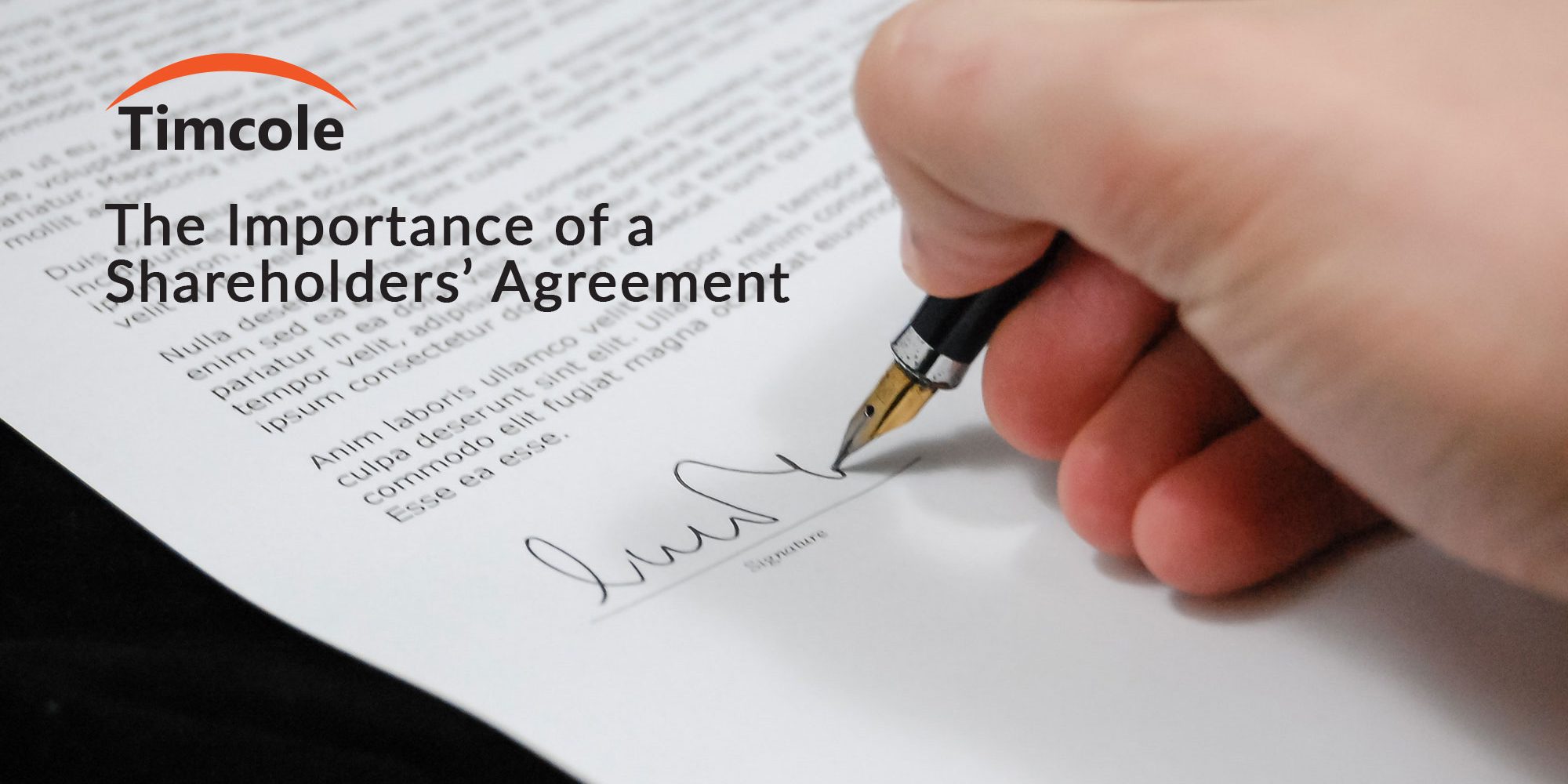What exactly is a Shareholders’ Agreement? A Shareholders’ Agreement is a legal document that shows all the rights, as well as all the obligations that the shareholders have in a company. When it comes to Singapore, these documents are often used in joint venture companies or closely held companies. If there is no such agreement in place, the relationships of the shareholders are governed by the articles of association of the company.
Here are some of the main reasons why you need to have a Shareholders’ Agreement!
A Shareholders’ Agreement is one of the most important legal documents in a business. One of the main reasons for this is because this document ensures that every single shareholder is on the same page when it comes to some of the most critical elements, including things such as dividend policy, issue of additional shares, and more. A Shareholders’ Agreement minimizes any potential disputes, and even if disputes do arise, this agreement doesn’t allow those disputes to affect the normal conduct of the business.
Apart from that, this agreement also protects the rights of the shareholders. This agreement also set forth more specific and important rules regarding the company, as well as the relationship between the shareholders. Unlike some other documents that are available for public viewing, a Shareholders’ Agreement is a private document, which means that it can uphold the confidentiality of every single party that is involved.

Looking for nominee services? Timcole can help you.
A Shareholders’ Agreement is not mandatory, which is not really the case with the Constitution of Company. However, it is highly recommended to have a Shareholders’ Agreement in place if your company has multiple shareholders. While it is true that the shareholders can make an agreement at any given time, having a Shareholders’ Agreement in place as early as possible comes with many benefits.
Having a Shareholders’ Agreement at a later point of business operation can be difficult, as shareholders may have disagreements over the terms than they will in the initial start-up. This is because some of the shareholders might change their priorities, expectations, or commitments when it comes to their position in the company. Another reason why this might happen is because there is always a good chance that one of the shareholders might gain a significant amount of control over the business. Thus, it is important to have a Shareholders’ Agreement in place at the time of setting up a company.
 Another obligation shareholders must comply to yearly is the Annual General Meetings. Learn the importance of this meeting and the penalties you might face if fail to do so:
Another obligation shareholders must comply to yearly is the Annual General Meetings. Learn the importance of this meeting and the penalties you might face if fail to do so:
- Annual General Meetings (AGM) in Singapore: Everything You need to know
- Penalties for Failing to Hold Annual General Meetings or File Annual Returns
What Should Be Included in These Agreements?
It is very important to know that not every Shareholders’ Agreement is the same. Each Shareholders’ Agreement needs to include the clauses that address all the conditions and scenarios that are unique to both the company and the shareholders. Simply put, these agreements can differ considerably from one another, and the main reason for that is simply because different companies have different rules, and thus each Shareholders’ Agreement comes with its own set of clauses.
For example, some of these agreements can contain terms relating to the consequences of death or disability of a shareholder, provisions regarding sale or transfer of shares, rules regarding the financing of the business, and more. And while it is true that not every Shareholders’ Agreement is the same, there are some provisions that are common in a Shareholders’ Agreement.
Let us share some of these common terms with you.
Directors and Board
This clause is used to determine how often the members of the board should meet, and it can also dictate the composition of the board of directors. Keep in mind that the approval of the main director is always required when it comes to making decisions.
Reserved Matters
This clause sets out the matters that require the approval of either a particular shareholder or every single shareholder that is involved in the situation. This includes matters that are connected to stuff such as borrowing, making loans, paying dividends, changing the share capital, disposing of particular assets, and more.
Guarantees and Indemnities
This clause defines the extent to which the shareholders are liable to when it comes to the guarantees that are provided by the company. On top of that, this clause defines the obligation of both the shareholders and the company.
Dealing with share transfers is one of the most important components of a Shareholders’ Agreement. This clause protects the rights of the shareholders through the Board Consent, Right of First Refusal, Drag Along Rights, Tag Along Rights, Russian Roulette, Permitted Transfer, and Compulsory Transfer.
Financing
This clause defines the obligations to finance the debt or provide guarantees and the consequences of default.
Events of Default
The main purpose of this clause is to define the matters that constitute an event of default, as well as the consequences of such default. Some of the most common events of default include things such as bankruptcy, permitting the creditors to seize shares, not fulfilling the obligations under the agreement, and more.
Dispute Resolution
This clause is used to define the means of resolving disputes among the shareholders by clearly spelling out the terms of enforced share sales. Of course, this can reduce both the time and cost of resolving a dispute.
Non-Solicitation and Non-Competition
This clause is mainly used to set out the shareholders’ covenants not to try and get something from the suppliers, clients or employees of the company. It also tells them not to engage in any business that might be in direct competition with the business of the company.
Deed of Adherence
The main purpose of this clause is to ensure that every single new shareholder adheres to the terms in the original Shareholders’ Agreement. New shareholders are often required to sign a deed of adherence before the allotment or transfer of shares.
Conflict With Articles
This clause ensures that the Shareholders’ Agreement always prevails when it comes to conflicts between the Articles and the Shareholders’ Agreement.
About Timcole
Timcole is one of the leading company incorporation and accounting firm based in Singapore. Our wide range of professional services serve as a one-stop solution for your business, offering you the most affordable price for services conducted with the highest level of excellency.
Contact us to find out more on how we can help you with your company today.
 Check our our promotional packages, covering all aspects of your business needs:
Check our our promotional packages, covering all aspects of your business needs:
- Company Incorporation Packages
- Company Secretarial Services
- Company Accounting & Taxation Packages
- Business / Limited Liability Partnership Set-Up Packages
Contact us for a free consultation today to choose or customize the most suitable plan for your business.








